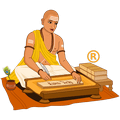























Sunrise04:48
Sunset18:59
Moonrise22:08
Moonset12:36
Shaka Samvat1725 Rudhirodgari
Vikram Samvat1860 Bhava
Gujarati Samvat1859 Bhava
Amanta MonthShravana
Purnimanta MonthBhadrapada
WeekdayMangalawara
PakshaKrishna Paksha
TithiSaptami upto 07:11
YogaGanda upto 06:55
YogaVriddhi upto 04:14, Aug 10
KaranaBava upto 07:11
KaranaBalava upto 18:09
Pravishte/Gate27
MoonsignMesha upto 02:23, Aug 10
Rahu Kalam15:26 to 17:13
Gulikai Kalam11:53 to 13:40
Yamaganda08:20 to 10:07
Abhijit11:25 to 12:22
Dur Muhurtam07:38 to 08:35
Dur Muhurtam22:55 to 23:34
Amrit Kalam16:08 to 17:39
Varjyam07:05 to 08:35
Notes: All timings are represented in 24-hour notation in local time of Cambridge, United States with DST adjustment (if applicable).
Hours which are past midnight are suffixed with next day date. In Panchang day starts and ends with sunrise.


 Dhanu 17:52
Dhanu 17:52 P Ashadha 12:05
P Ashadha 12:05

 Makara
Makara U Ashadha 11:03
U Ashadha 11:03

 Kumbha
Kumbha Dhanishtha 07:44
Dhanishtha 07:44

 Kumbha 22:08
Kumbha 22:08 Shatabhisha 05:43
Shatabhisha 05:43

 Meena
Meena U Bhadrapada 25:34+
U Bhadrapada 25:34+

 Meena 23:40
Meena 23:40 Revati 23:40
Revati 23:40

 Vrishabha
Vrishabha Rohini 19:08
Rohini 19:08

 Mithuna
Mithuna Ardra 19:19
Ardra 19:19

 Karka
Karka Pushya 21:20
Pushya 21:20

 Karka 23:01
Karka 23:01 Ashlesha 23:01
Ashlesha 23:01

 Kanya 22:58
Kanya 22:58 Hasta 09:27
Hasta 09:27

 Tula
Tula Swati 15:23
Swati 15:23

 Tula 11:21
Tula 11:21 Vishakha 17:58
Vishakha 17:58

 Vrishchika
Vrishchika Anuradha 20:02
Anuradha 20:02

 Vrishchika 21:27
Vrishchika 21:27 Jyeshtha 21:27
Jyeshtha 21:27

 Dhanu
Dhanu Mula 22:07
Mula 22:07

 Makara
Makara Shravana 19:45
Shravana 19:45

 Makara 06:48
Makara 06:48 Dhanishtha 17:44
Dhanishtha 17:44

 Kumbha
Kumbha Shatabhisha 15:20
Shatabhisha 15:20

 Kumbha 07:22
Kumbha 07:22 P Bhadrapada 12:42
P Bhadrapada 12:42

 Meena
Meena U Bhadrapada 10:00
U Bhadrapada 10:00In Hindu Calendar, the day starts with local sunrise and ends with next day local sunrise. As sunrise time is different for all cities, Hindu Calendar made for one city is not valid for any other city. Hence it is important to use location based Hindu Calendar, like this website. Further, each Hindu day consists of five elements, which are called angas. These five elements are -
In Hindu Calendar, all five elements together are called Panchang. (In Sanskrit: Panchang = Pancha (five) + Ang (part)). Hence Hindu Calendar which shows all five elements for each day is called Panchang. In South India Panchang is known as Panchangam.
When Hindu Calendar includes Muslims, Sikh, Christian, Buddhist and Jain festivals, including national holidays, it is called as Indian Calendar.